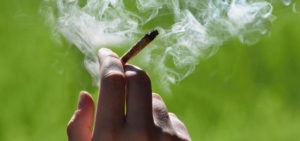Study: After-Hours Cannabis Use Has No Negative Impact On Worker Performance

A San Diego State University study found that after-hours cannabis use has no negatives effects on workplace performance but did find a negative correlation between those who used cannabis before and during work with task performance.
In fact, Dr. Jeremy Bernerth, management professor at San Diego State University’s Fowler College of Business and study co-author, suggested that after-hours cannabis use may actually offer some work-related benefits.
“Individuals deciding to consume cannabis after finishing their work may be able to distract themselves from stressful on-the-job issues. The relaxation induced by cannabis may help employees restore energy spent during the day and they may subsequently return with more stamina to devote to their job once they are back on the clock.” – Bernerth in a statement
Jack Walker, management professor at Auburn University’s Raymond J. Harbert College of Business, joined Bernerth on the study, which surveyed 281 employees and their direct supervisors and “citizenship behavior,” or their willingness to voluntarily help the organization or their colleagues. Participating employees and supervisors were recruited through social media and with the help of university business students, though cannabis usage was not required of the participants.
Each employee was asked about the frequency and timing of their cannabis use as it relates to their work shift. The managers were asked to assess their employee’s task performance, citizenship behavior, and any counterproductive work behavior.
The researchers found the supervisors more often reported reduced citizenship behavior and counterproductive work behavior by employees who used cannabis before and during work hours but no “significant change in any of the work performance dimensions when employees used cannabis after work.”
Bernerth added that since the study found no negative effects when employees use cannabis after work, organizations would be “hard-pressed to provide legally defensible justifications for the continuation of policies prohibiting all forms of cannabis use.”
Bernerth said the study is the first in nearly two decades to “research cannabis usage in relation to workplace behaviors.”


